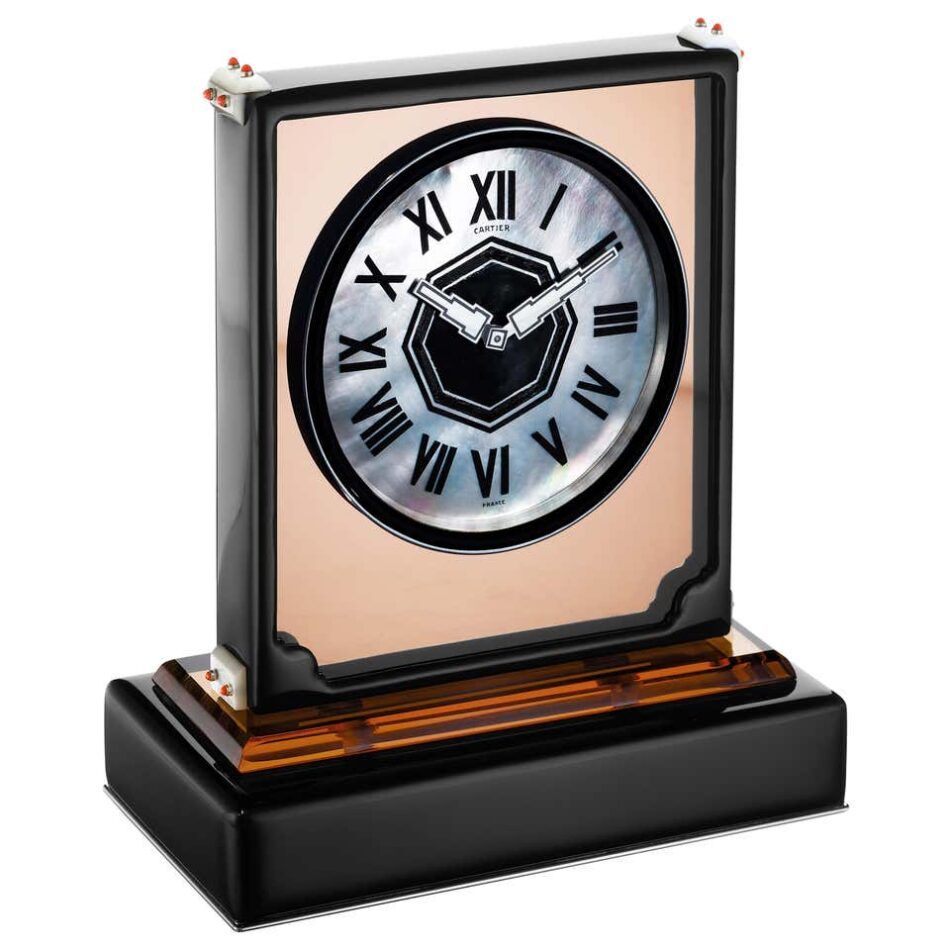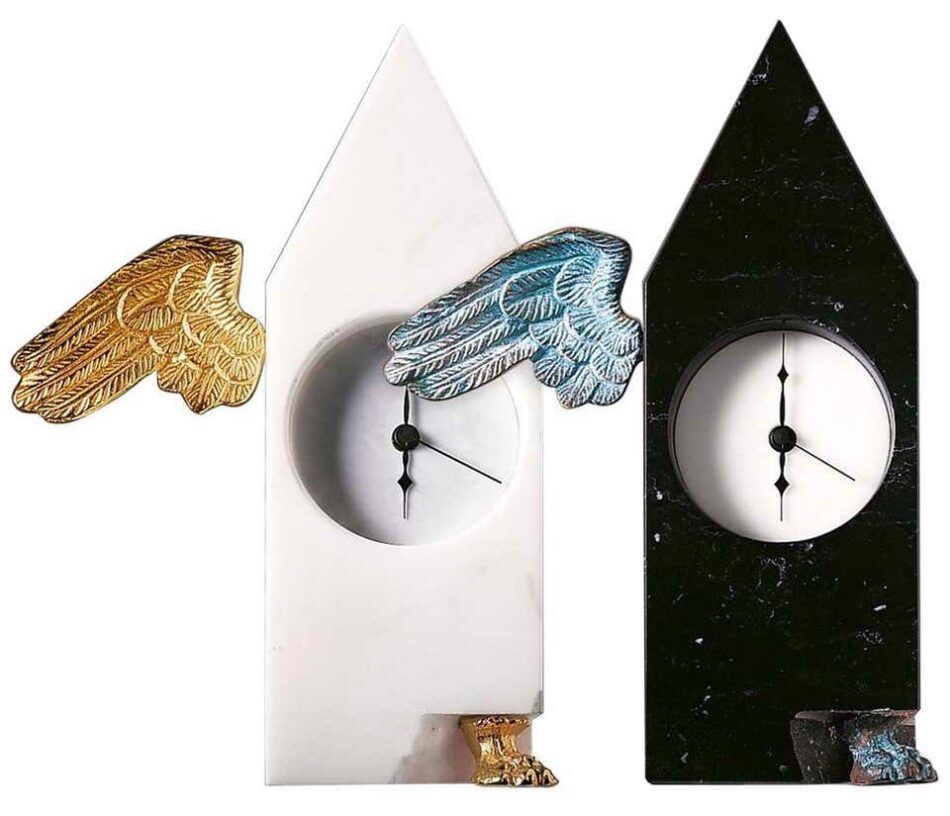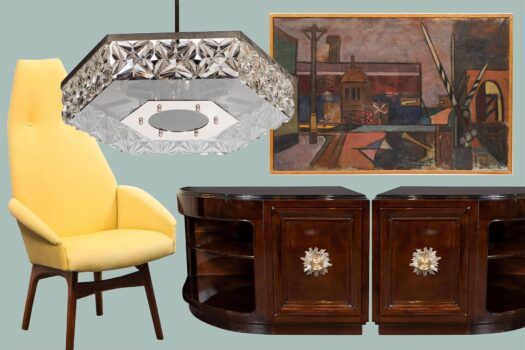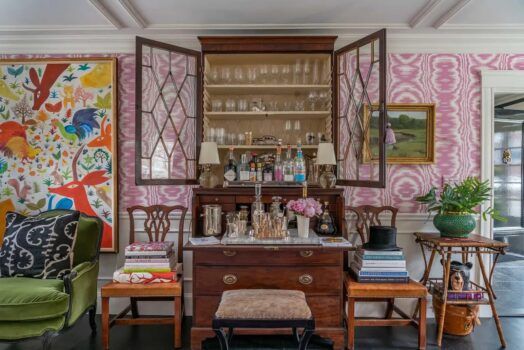Dr. Seuss asked, “How did it get so late so soon?” An excellent question. To help you find answers, we’ve put together a selection of a dozen unusually beautiful clocks, big and small, that will both fascinate you and keep you on schedule.
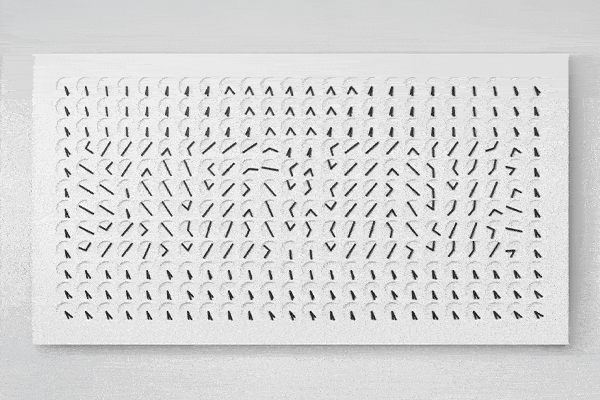
In this work-of-art-cum-timepiece — designed by Bastian Bischoff and Per Emanuelsson, who collaborate as Humans since 1982 — the hands of 288 analog clocks move in an intricate dance.
“The presentation is elegant, abstract and mysterious,” says Marsha Zhong, associate director of Gallery All, “which keeps your eyes on the ‘choreography’ and gives you a wow moment every time the clock hands form” numerals. That is, once every minute!
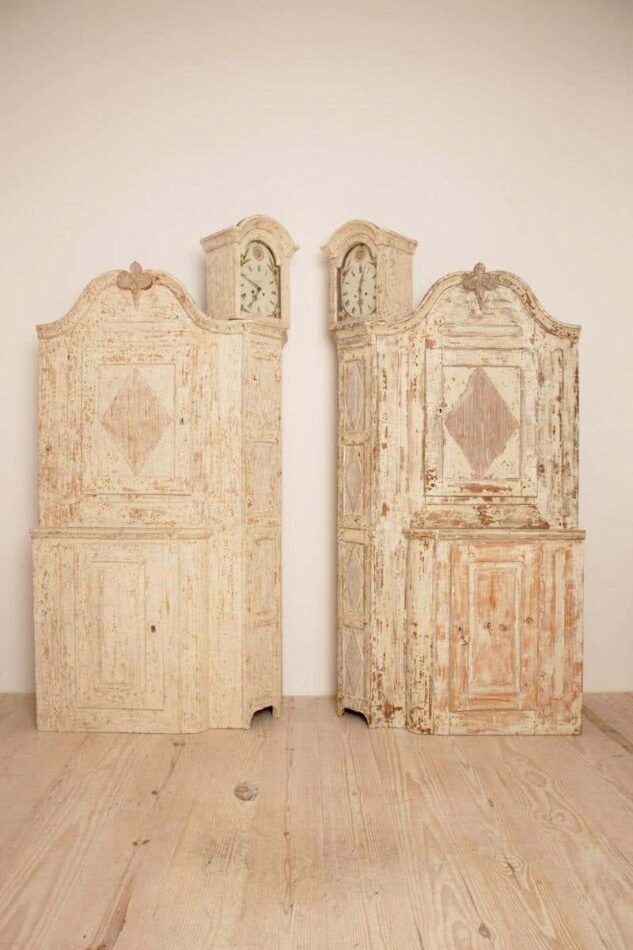
These towering Swedish Gustavian cabinets were probably built for the same house, but about 10 years apart. “I had never seen — and will likely never see again — 18th-century artistry like this,” says Jill Dienst, of Dienst + Dotter Antikviteter. “It is their story and the mystery that surrounds them that is so intriguing and special.”

“Patek Philippe’s revolutionary electronic timekeepers are undoubtedly the most impressive modern clocks we’ve had the pleasure to offer,” says Lori Paige, of M.S. Rau. “They’re quite rare today, and since all of them were specially made for Patek’s clients, they are all unique.”
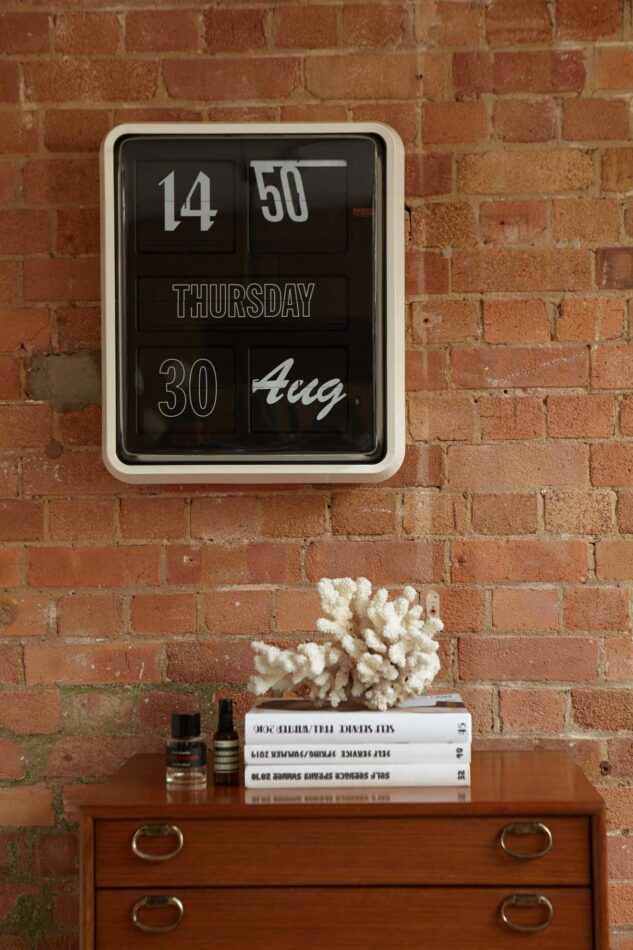
“It’s an important object for us as a family,” says Sebastian Wrong, designer and creative director at Established & Sons, referring to the Font clock in his home. “There’s something very reassuring about the repetition and the sounds. It’s one of those objects that, when you don’t have it, you really miss, if you’re used to living with it.”
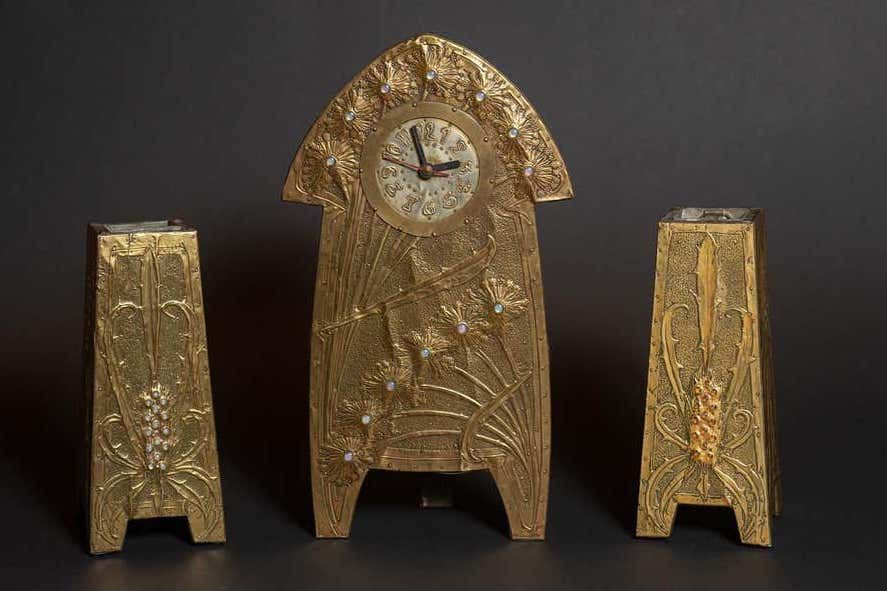
Jerry Suqi, the director of Galerie Fledermaus, cites this clock as one of his favorites. “Although Alfred Daguet was a true master of metal repoussé, his craftsmanship is not necessarily what sets this piece apart,” Suqi explains. “Rather, it’s the evidence of pure joy and playfulness that the set exudes that makes it remarkable.”
“The beautiful composition of rose-gold mirror against black enamel and mother-of-pearl would have felt austere compared with the designs that came in the decades prior,” jewelry dealer Lee Siegelson says of this Art Deco–era Cartier clock, “but today it feels modern and timeless.”
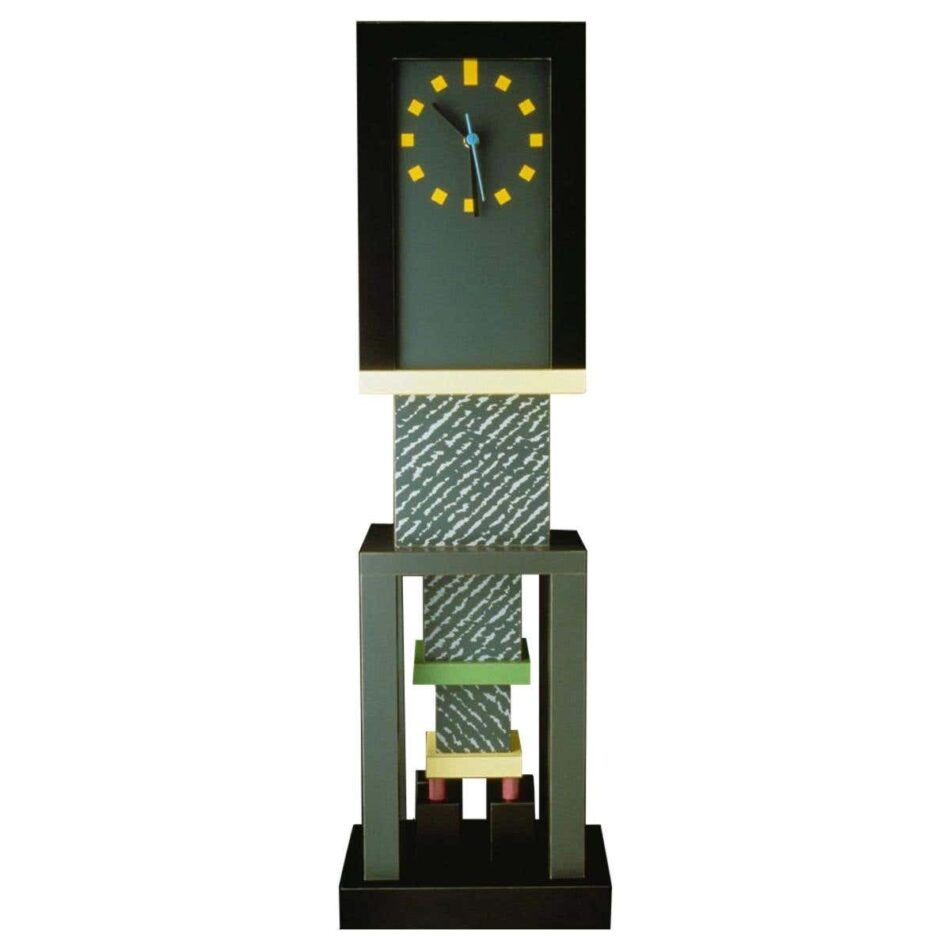
In the 1980s, Memphis Milano revolutionized design. As part of the movement, George Sowden conceived the Metropole timepiece, one of his best-known creations. “The clock is unusually harmonious,” says Sonia Galbiati, press manager at Memphis Milano, “and its anti-functionalism makes the Metropole a true postmodern object.”
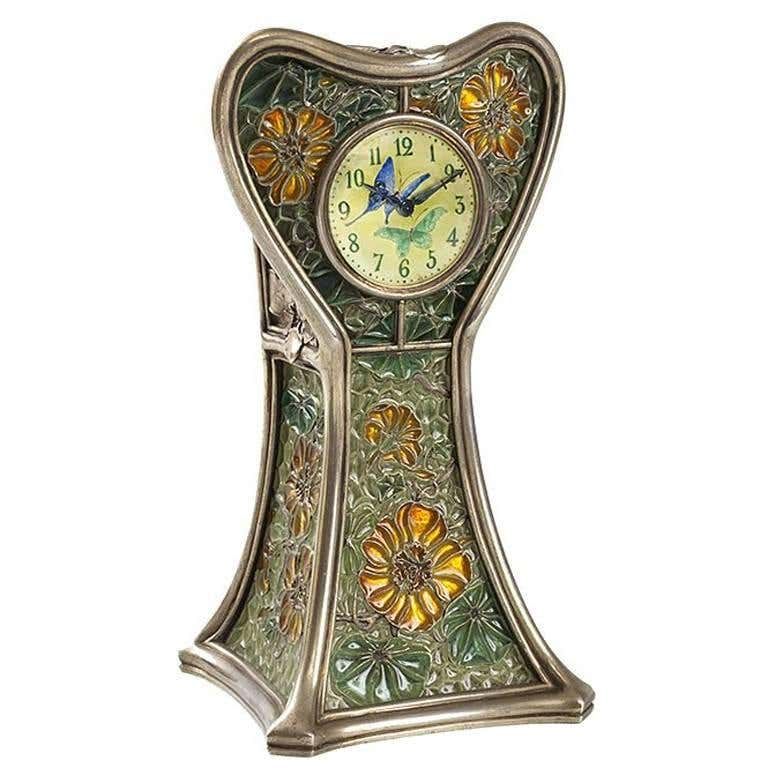
“Eugène Feuillâtre’s remarkable abilities in plique-à-jour enamel are on full display” in this piece, says Benjamin Macklowe, president of Macklowe Gallery. “The romance of the nasturtium blossoms is balanced by the fleeting impermanence represented by the enameled butterfly on the clock face, making this an alluring and charming composition.”
“The house represents life,” says Matteo Baldini, from marble maker Upgroup, explaining the iconography of this pair of clocks by architect David Palterer, made from white Carrara and Nero Marquina marble. “The broken corner stands for the difficult moments. The wing is time that inevitably flies away, and the lion’s paw the strength of time that disrupts all.’’
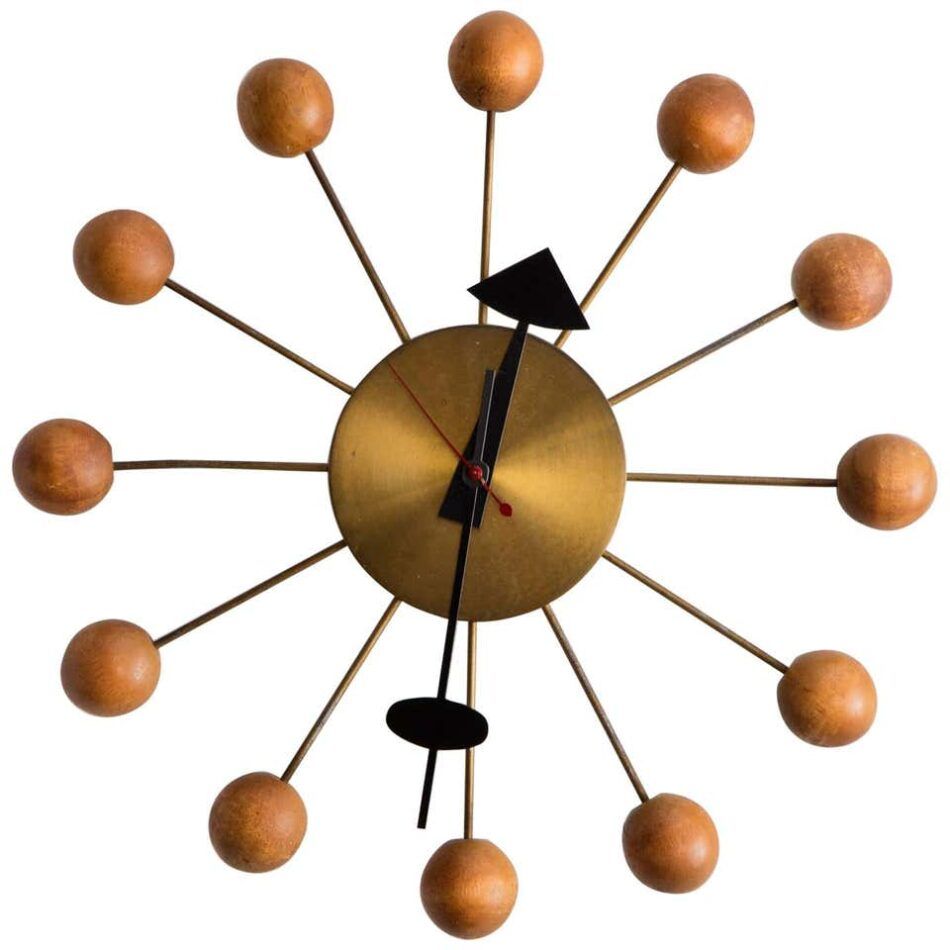
A classic example of mid-century modern design, the playful Ball clock, designed in the studio of the legendary George Nelson, is now both retro and futuristic. Here, R & Company presents a vintage example crafted from brass, steel and maple.
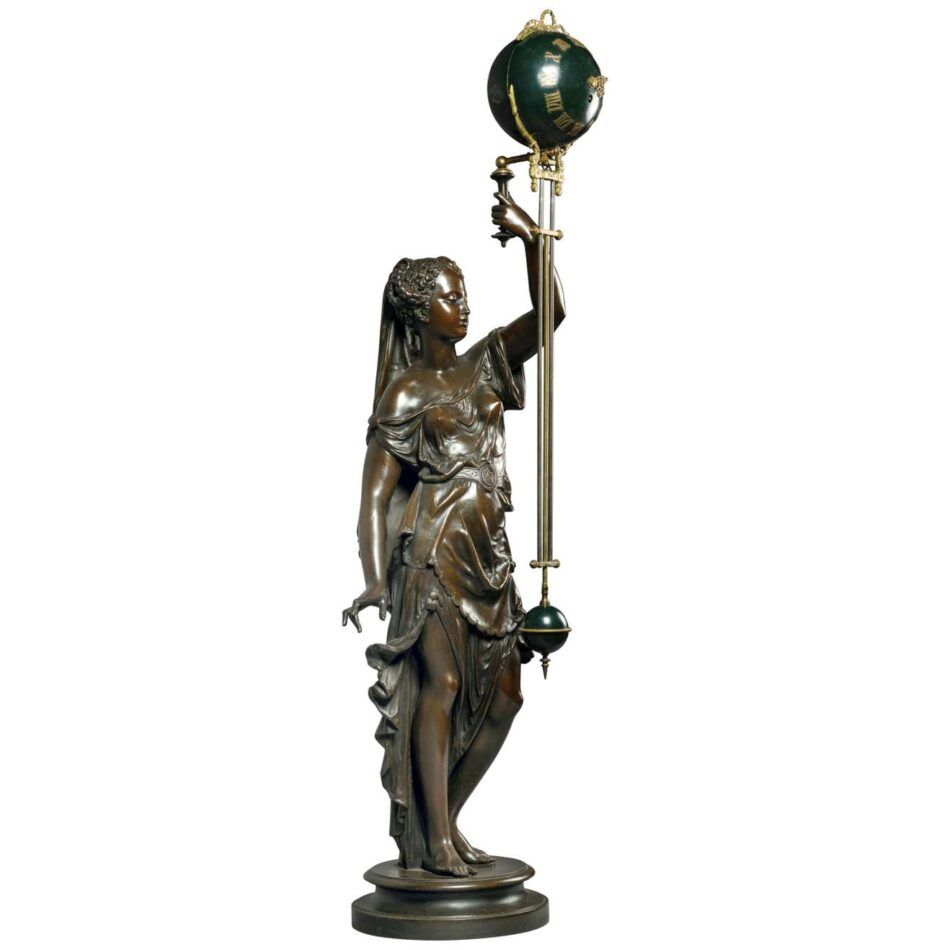
Offered by Adrian Alan, one of the world’s leading dealers in 19th-century furniture and works of art, this lovely mademoiselle stands 37 inches high. The mystery lies in the movement of the pendulum she holds, which gently swings — seemingly without any mechanism maintaining its momentum.
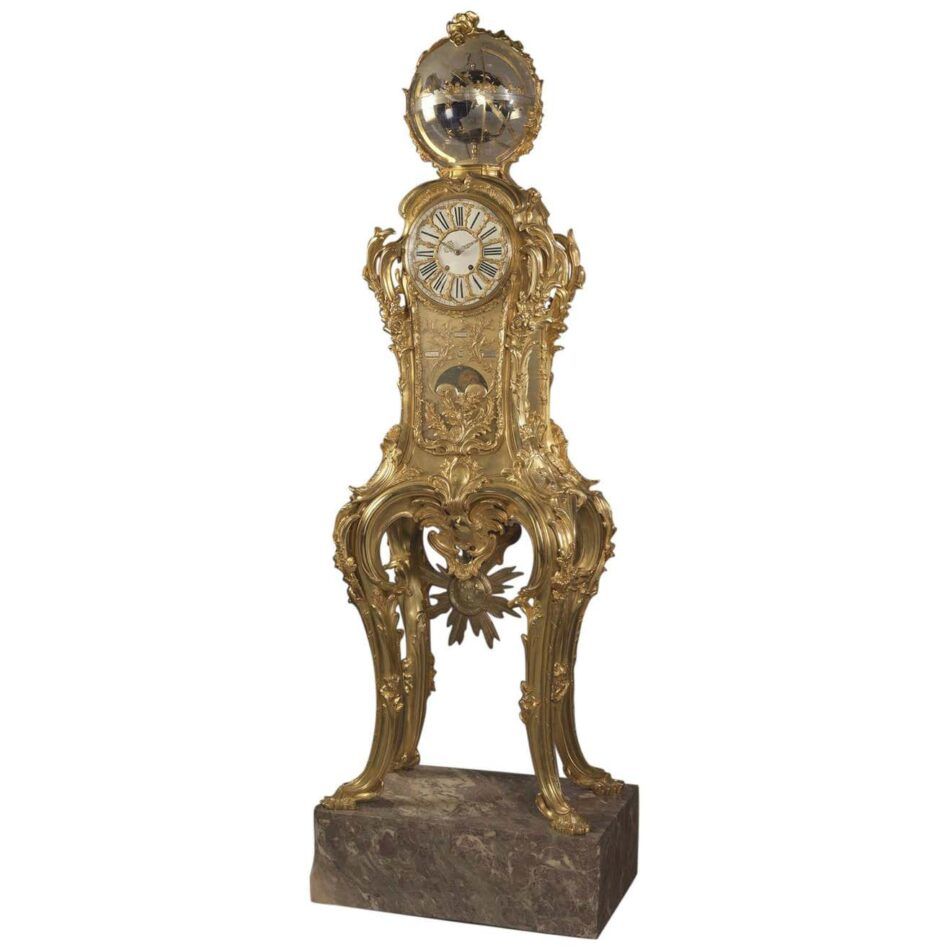
Modeled on a renowned clock created for Louis XV in 1750, this regal precision instrument will never let you forget the time. “The present example, one of only two documented examples made by François Linke, is of exceptional quality, with superb casting and gilding,” says James Graham, of Adrian Alan.
